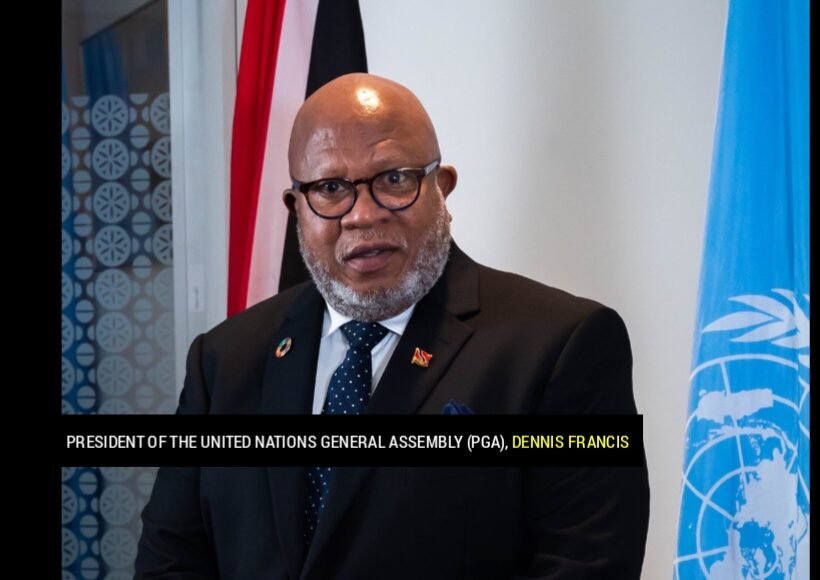President of the United Nations (UN) General Assembly, Dennis Francis, recently underscored the alarming financial burdens faced by Small Island Developing States (SIDS). He made those remarks during his address at the Presidential Roundtable on “#ChooseSustainability: Building Resilient and Prosperous Societies,” on August 6, 2024, held at the University of the West Indies (UWI), his alma mater.
In his address, he highlighted that the task lies with young leaders to make policy choices that can sustain or suppress economic growth. “…Uphold the core tenets of international law, advance human rights for all – and in so doing, write the next chapters of a larger, uniquely Caribbean story of sustainability and resilience,” he said.
To this end, Mr. Francis noted that this responsibility has to be executed amid a host of global challenges, including conflict and climate change, poverty, hunger and food insecurity.
The UN official also underscored that the challenges that are stymieing progress across the 2030 Agenda for Sustainable Development, a shared blueprint for global peace, security and prosperity, cannot be fulfilled without addressing the debt crisis that is fueling dangerously unsustainable socioeconomic disparities between the Global North and the Global South and indeed within countries in the South, particularly SIDS and other Developing countries in vulnerable situations.
“More than 40 per cent of SIDS have a debt to GDP ratio above 40 per cent – with some exceeding 100 per cent,” stated Francis. He continued, “This means filling these gaps and moreover, fixing an outdated global financial system that has in fact disadvantaged many by failing to assist them in building resilience against exogenous shocks.”
Francis outlined that in most instances for SIDS scarce resources have to be deployed often to rebuild the same infrastructure damaged or destroyed repeatedly by catastrophic events. The economic plight of SIDS has long been a topic of concern, with these nations facing unique challenges due to their small economies and vulnerability to climate change.
Moreover, he called for the promotion of sustainable consumption and production in every human facet, to ensure that future generations inherit environmental assets capable of supporting civilization.
Francis cited the upcoming High-Level Meeting at the General Assembly on September 25, which will focus on the existential threat posed by sea-level rise, as a critical platform for advancing these discussions.
“This is a matter of such complexity and implications that it demands urgent attention by the international community as critical issues of sustainability arise in the context of the future of these countries,” he added.
The UN official noted that the discussions aim to stimulate multisectoral and multi-stakeholder collaboration, essential for delivering on global sustainability promises and easing the anxieties of millions living in vulnerable regions.











